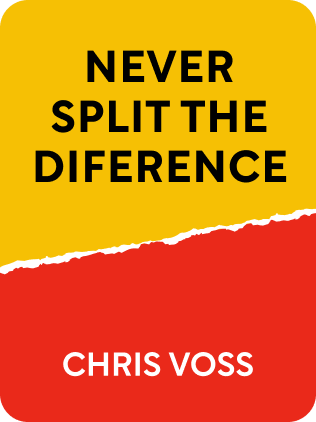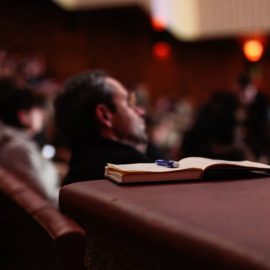

This article is an excerpt from the Shortform book guide to "Never Split the Difference" by Chris Voss and Tahl Raz. Shortform has the world's best summaries and analyses of books you should be reading.
Like this article? Sign up for a free trial here .
Do you want to brush up your negotiation skills? What are some negotiation exercises you can practice?
These three negotiation exercises are based on the negotiation principles laid out in Never Split the Difference, a negotiation handbook written by former international FBI hostage negotiator Chris Voss. They will help you practice key negotiation skills such as mirroring, conducting an accusation audit, and formulating calibrated questions.
Try these negotiation exercises to level up your negotiation game.
Negotiation Exercises
Never Split the Difference: Negotiating As If Your Life Depended On It makes the case that decision-making is highly irrational and emotionally-driven. Therefore, skilled negotiators learn to tap into the deeper emotional needs of their counterparts: what do they really want? What do they really fear?
But how do they know? Like with any skill, becoming good at negotiation takes practice. These negotiation exercises is a great place to start.
Exercise 1: Influencing People
Think about how you can bring people around to seeing things your way.
Has someone ever placed deadline pressure on you, which then caused you to make a bad decision? Describe what happened. How could you resist this in the future?
Think of an upcoming negotiation of some kind you need to do. How could you make use of loss aversion to make the other person worried about losing what you have to offer?
Exercise 2: Practice Tactical Empathy
Answer these questions to learn more about how other people think and feel.
Have someone else’s actions ever seemed perplexing to you because didn’t know or understand what they really wanted? Describe the situation. In the future, how could you apply some of the tactics you’ve learned to uncover people’s real wants and needs?
Practice mirroring. Write down what someone who was upset with you recently said to you. Now write a response, using the last 3 words in your reply. What do you say?
Practice an accusation audit. Remember a time when someone was unhappy with you. Now do an accusation audit: “I’m sorry. You probably think I’m…”
Exercise 3: Getting Results
Get what you want from your negotiations.
Think of a time when you wanted to get information from someone, but didn’t know how to approach it without being too direct. Describe the situation. How could you have asked for it in a more subtle, less forward way? What calibrated questions could you have asked?
Has someone ever committed to do something for you, only for them to not follow through? Describe how that felt. What can you do in future situations to ensure that other people live up to their commitments?
What negotiating style best describes you? Explain your answer and identify the strengths and weaknesses of your style.
Think of a time when you have completely changed your opinion or decision about a project because new information came to light. How would you avoid these surprises in the future? What techniques would you use to find these “unknown unknowns” or hidden pieces of information?

———End of Preview———
Like what you just read? Read the rest of the world's best book summary and analysis of Chris Voss and Tahl Raz's "Never Split the Difference" at Shortform .
Here's what you'll find in our full Never Split the Difference summary :
- Lessons learned from years as an FBI hostage negotiator
- Why negotiation is about emotional appeals, not rational ones
- The 5 methods for tactical empathy, which gets you what you want by focusing on the other person's feelings






